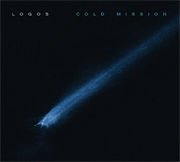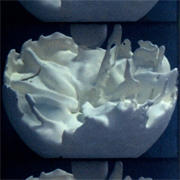Welcome to this month’s instalment of Hyperspecific, the Quietus’ regular electronic music column gathering together recent and upcoming releases of note. I’m keeping the preamble brief this time, after last edition’s rambling mini-essay. I’ve been out to parties and nights a fair amount over the last month, but it’s felt like ages since I’ve had a proper, disregard-what-anyone-around-you-thinks, dance. So here’s some dance music that’s been hogging the headphones in October (plus a few other interesting tidbits for good measure).
DJ Nigga Fox – O Meu Estilo
(Principe Discos 12")
DVA – Mad Hatter
(Hyperdub 12"/CD/DL)
At a festival hardly lacking in disorienting and mind-altering delights, DJ Nigga Fox’s high-octane, syrup-gloopy set at the Saturday night rave of Unsound Festival was among the week’s most striking moments: an hour of highly charged and syncopated dance music that careered from focused forward drive into periods of splattery chaos during which the entire fragile construction seemed ready to rip itself apart at the seams. Needless to say, it turned a dedicated crowd into a sweaty, vodka-soaked mess, dragging hangover-sludgy legs into action almost in spite of themselves (mine included to an extent, though there were many far more disheveled looking than I by set’s end).
Nigga Fox is from Lisbon, and a part of the crew surrounding the label Principe Discos, whose showcase at Unsound also featured the high-octane 150-odd bpm body-battery of DJ Marfox. Both artists’ music would be striking by anyone’s standards, drawing largely from Angolan urban dance styles such as kuduro but working their irresistible, bounding rhythmic contortions into a framework that nods as much towards the wider global house/techno community. Rather like the earliest wave of UK funky as it emerged from the peripheries of the grime scene in London, it’s a refreshingly raw but open-ended vision of house-rooted music, with both production nous and adherence to established conventions entirely secondary to the single, central imperative of making bodies move.
As UK funky in London developed into an identifiable scene and sound, it began to merge with the wider house diaspora (as well as a growing number of ‘bass music’ refugees from dubstep). Its producers – many from grime backgrounds, who initially had almost accidentally stumbled across this hybrid form while trying their hand at producing house music – gradually became more skilful at making slicker tracks, and some of that initial magic, that energy and naivety that often characterises new styles in their infancy, ebbed away. The Principe Discos crew are from Lisbon, not London, of course, but I mention it because there’s something in DJ Nigga Fox’s debut EP O Meu Estilo that reminds me of that brief period of time when funky was doing some wonderful, limb-twisting and volatile things with African-influenced rhythm.
O Meu Estilo‘s five tracks have a slightly murky feel – with rubbery melodies, chants and grunts tossed around willy-nilly in the upper echelons of the mix like pound coins rebounding around a washing machine – but they’re brimming with ideas and do some quite marvelous things with rhythm. Each track’s kick-snare backbone is swung almost to the point of snapping, with drum hits cut off at odd angles, lending the music an ill, loping motion. ‘WeeD’ is as sickly as its name implies, with an alarm-whine synth foregrounded to the point that the track sounds constructed back-to-front, heightening the skunked-out, paranoid suspicion that all is not quite what it should be. And occasionally, as on ‘O Badaah’, the entire mess of wonkified synth blurts, doppler-effect moans and clattering percussion seems to trip over itself and tumble down a flight of stairs, a trick reminiscent of the spaced-out rhythmic psychedelia of London’s Scratcha DVA (think the latter’s 2009’s ‘Jelly Roll’, which apparently confused many funky DJs at the time to the extent that they wouldn’t even play it) – still the wildest and most uncompromising of those early post-grime funky producers.
Speaking of DVA, he’s just resurfaced on Hyperdub for the first time since last year’s Fly Juice EP, with another 12" of knotty, gleefully anarchic synthetic funk. Scratcha has remained, if not exactly underrated, perhaps a slightly lesser-celebrated member of the Hyperdub collective, possibly due to the unplaceable weirdness of what he does: taking the brusque, in-yer-face textures and production tactics of grime and funky’s undulating, kinked-out motion, spinning the whole construct in a centrifuge to send everything a little seasick (space-sick?) then rocket propelling it outward into the cosmos.
Last year’s intermittently great debut album Pretty Ugly was a further link in Hyperdub’s ongoing relationship with L.A.’s astrally-minded Brainfeeder/Low End Theory collective (something established a few years previously via a hook-up of mutual admiration between Hyperdub boss Kode9 and Flying Lotus). While DVA’s earlier releases bent the UK’s dance continuum into unusually abstract and rhythmically truant forms of club music, that album’s radiation-blasted opener ‘Reach The Sun’, Fatima-vocalled ‘Jus Vibe (Soule Power Mix)’ and murky banger ‘Polyphonic Dreams’ opened up conduits into space, their colour-saturated synth meanderings and aura of future-shocked bedazzlement as inspired by soul, Sun Ra and Herbie Hancock as by anything recently beamed out across the UK’s post-pirate radio airwaves.
DVA’s new Mad Hatter comes in a couple of forms: a 12" and download gathering three particularly confounding and great new tracks with a DJ Rashad remix, and a CD also containing the already-released Fly Juice EP, which feels practically like an album in its own right. Given that DVA’s idiosyncratic music exists at slight remove from the rest of the UK’s fast-moving bass music ecology, it’s unsurprising that the latter material hasn’t really aged. ‘Rumours’ is riotous fun, lobbing rogue chunks of squidgy bass all over the place, like chewed bits of bubble gum flicked around the top deck of a school bus.
The Mad Hatter material is better still, a further distillation of Fly Juice‘s warped, rough ‘n’ tumble dance sensibility. More than before, it’s possible to hear how Kode9 and DVA’s ideas are leaching into one another – here he crosses the caustic, cartoonish flexi-contortions of Pretty Ugly and Kode9’s most recent material with careering rhythms closest to the mad flailings of Objekt and A Made Up Sound. At any given time ‘Mad Hatter’ itself, for example, seems to be pulling in about six directions at once – bulbous sub-bass gropes from below in a frantic attempt to hold onto the splintered breaks making an eager bid for freedom in the high-end; later, corrosive goo soaks the midrange. When, at two minutes, the track drops out into a much scuzzier, lower-tempo sampled funk passage, it’s as if someone’s nudged the radio dial and another station is leaking into your airwaves – a transition striking enough disorient you on first listen. ‘Gang Gang Riddim’ blasts bits off UK, US and Jamaican sound system musics into a humid and molasses-thick swamp of a track, and ‘Chilli Burrito’ (first featured on Kode9’s Rinse 22 mix from earlier this year) macerates its sampled voices with snares like metal teeth and synth tones that stand on end as if hooked to a Van Der Graaf generator.
A Made Up Sound – ‘After Hours’ / ‘What Preset’
(A Made Up Sound 12"/DL)
Beneath – ‘Worried’/’Shenron’
(No Symbols white label 12")
Dave Huismans recently released the latest in his ongoing run of A Made Up Sound 12"s which, contrary to the "dancefloor cluster bombs" of his last release ‘Ahead’/’Endgame’, restrains itself from any showy manoeuvres. I rarely resist the chance to write about Huismans’ music, as it’s some of the most unique around at the moment, and both ‘After Hours’ and ‘What Preset’ trek into new, extended zones of exploration. The former, for example, doesn’t build or drop per se, or even really groove; it just broods for twelve minutes, knitting itself into order from a clustered tangle of modular bleeps, sonar pings and hollow, rattling ambience. The result feels something akin to crawling through a sewer pipe or wandering through off-limits areas of city infrastructure, a sensation heightened by a quite unsettling clip of film dialogue ("What did you do to her?" "I didn’t do anything to her, she was asleep… She was… tired") picked up as if by eavesdropping through an air vent. ‘What Preset’ has a similarly aquatic feel as Bandshell’s music, where bass is treated to become muffled booms, delay and reverb stretch tiny elements out into sweeping gestures, and pinprick melodies ebb invitingly in the current.
Someone else whose music maps the city as a toxic place to be is Beneath, whose tracks are so heavy-lidded and pranged-out it’s a wonder they manage to rouse themselves into action at all (in fact, unreleased cut ‘Bored 1’, which I used to open a recent mix, doesn’t, preferring to remain sullenly beatless). In Beneath’s hands the urban world is a battlefield teeming with foes just out of sight, something to be passed through with hood up and eyes down – or quite the opposite, to be dealt with by projecting a front of seething belligerence. As I wrote in my end-of-year Quietus list last year, his beats are endlessly fascinating – hard-edged, tough and confrontational, but stirred into patterns that coil back upon themselves in infinity loops, pulling back from the build/drop lexicon in favour of bristling, groove-led restraint. (As a slight digression, it’s been interesting to note that since last year, when latent junglist hints lurked in the music of Beneath, Joe, Pangaea, Champion and more, jungle has become a far more overt presence in the UK scene in 2013 so far.)
It’s exciting to hear Beneath starting to transcend his most overt influences (early dubstep of the FWD>> variety, first-wave funky) in favour of something more ambiguous and distinctly his own; the patchwork collage of drones, sheet noise and metal drums on this third release for his own label No Symbols isn’t a million miles in feel, if not in structure and function, from the sinister darkside thrum of fellow London resident Helm. ‘Worried’ rolls out across a sinuous, sidewinding axis of kicks and sucker-punch snares; through the centre courses a slick of translucent fluid that iridesces like car oil on a puddle’s surface. ‘Shenron’ on the flip is devastatingly funky techno, sidling into a similar space as Szare or Alex Coulton, while you hang on for dear life as it coasts silkily along.
Andy Mac – Regular & Irregular
(Idle Hands 2×12"/DL)

Idle Hands, the label based out of the Stokes Croft shop of the same name, have gathered a selection of his tracks for this double 12" release, which run the gamut from, as the EP’s title suggests, regular to irregular. Mostly, though, they fall to the latter side of the fence, with results that range from intriguing to beguiling. What marks out these five tracks, and what makes them very different from Mac’s debut release, is their restraint, which goes to almost maddening extents at times – ‘Cities & Desire’, which opens, begs for a kickdrum to send it into orbit. All the other elements are present and correct, but Mac steadfastly refuses to corral them into a straight-up dancefloor track. Which, for all its frustrations, is a wise move – the piece fares rather beautifully without them, drawing your attention subtly towards the delicate interplay between the other elements that are present. (And besides, if you’re really desperate for the gratification of a good kickdrum, you can always mix it – something it’s clearly intended for). At its end it shivers away into a silvery cymbal rush.
Other tracks repeat a similar trick. ‘The Rude Sea’ shuffles and grinds along above a shimmying five-into-four rhythm, while a short snippet of muffled piano plays and over, Theo Parrish-esque, as if caught in an accidental locked groove. ‘Lit’ is drumless bleep-and-bass and the most overtly Bristolian-sounding piece on the EP, its dubby feel and slow unfurling reminiscent of early Peverelist at his most pared-back and mood-altering. In fact, it’s people like Pev, Elgato and Joe that Regular & Irregular is most reminiscent of. The sound palette might be different, but he shares a reductive approach, a willingness to siphon off material until only the essentials remain in place. If he doesn’t always match those contemporaries for sheer mesmeric potency, that’s to be expected, given how relatively early he is into his releasing career.
Logos – Cold Mission
(Keysound LP/CD/DL)

Logos’ 2011 Kowloon EP, released through Keysound, stalked a similarly unseen world. A potent, lonely take on the brittle snap-and-chatter of Wiley’s early eski grime instrumentals, at the time its tracks felt strikingly individual, and possible precursors to new stylistic avenues yet to develop. Of course Logos wasn’t the first person to re-channel that sound palette – Zomby, Untold and the Night Slugs crew had been drawing powerful club manna from the 8-bar and early grime template for a few years – but his take was unusually dramatic and ghostly, largely eschewing beats and instead allowing its glistening curtains of synthetic texture to hang heavy in the air like fog on a cold morning, so delicate that they’d likely dissipate in a strong breeze. Disembodied voice fragments, like phone conversations caught in crossed lines or a brief interruption from a pirate station as you flick the radio dial, occasionally blurted into view before vanishing. At the time I raved about it, saying "[its] stacked layers stitch together a frosty and freakily fragile patchwork quilt of synth texture. Between these defined melodies, chimes and percussive boinks are ghost presences, confined forever to the edges of perception. They leave a sad and metallic taste in the mouth, in the best possible way."
Fast forward a couple of years and instrumental grime is in great shape, with a worldwide community of newer producers doing some tremendous things, and last month’s spate of war dubs rousing young artists and veterans alike. (I discussed it at some length in <a href=http://thequietus.com/articles/13374-hyperspecific-24-visionist-na-pan-katie-gately-rashad-becker" target="out">last month’s edition of this column.) And although in hindsight ‘Kowloon’ was a pre-emptive strike ahead of a wave of people making similarly wraithlike beats, Logos’ debut album Cold Mission once again finds him in his own world, streamlining that devil mix aesthetic into a drastic, violent minimalism. Indeed, it’s the silence that gets you first – there’s just so much of it, with opener ‘Ex 101’ (the title surely a cheeky nod to Underground Resistance) coalescing from nothingness with deliberate slowness in the album’s opening seconds.
Negative space is so noticeable throughout Cold Mission because the moments when that calm is broken are shattered with such force: by fat fists of monochrome synth texture and sub-bass that knock the wind from your chest, by breaking glass, by vaporous melodies that dissolve into fine mist and drift in the air long after everything else has slunk back into the shadows again. You could still bust moves to much of the album in the mix, and Logos’ 12" releases (including this year’s towering ‘In Reverse’ with Mumdance) operate more clearly in a club music idiom, but as a standalone entity Cold Mission is a refreshingly daring prospect – a debut album from a dance producer containing comparatively little actual ‘dance’ music.
So for the bulk of Cold Mission rhythm is present as gestures, with a devilish sense of funk implicit in the interplay between what elements are present: plunging bass, set in a wintry wonderland of environmental sound, glittering melody, glancing drum and hi-hat hits, and fogdrifts of translucent melodic vapour torn from the interludes of classic jungle tracks. The results are striking, chewing up and spitting out sonic signifiers from across the UK dance continuum with a steely intensity and immediacy that banishes any sensations of nostalgia; Logos is clearly a junglist, the album’s backbone is grime, but it runs at 130bpm, marking it out as contemporary. Alongside fellow London resident Jam City, this is some of the most adventurous and futuristic electronic music emerging from the UK dance community right now. ‘Seawolf’, which you can hear at the 11 minute mark in Logos’ recent half-hour mix for Rinse FM’s Boxed Special (listen via the embed above) sends 8-bar style bass thwacks and synth brushstrokes slicing downward through the mix like samurai swords, daring your to feet and limbs to follow. ‘Alien Shapes’ is a collaboration with Keysound label bosses Dusk & Blackdown and among the more club-ready things here, raising an aerial into the sky to capture brief snippets of MCs on contemplative form, and meshing them among laser zap percussion and mirrored hi-hat swipes.
In the past, such pointedly stripped-back tracks might have demanded the presence of an MC to complete the picture. However, with focus among Logos and his contemporaries firmly on the instrumental side of things, Cold Mission‘s tracks instead brim with subtle additional detail – if anything, adding a vocalist would feel like a distraction. On ‘Surface Area (Main Mix)’ bass bucks evilly at the base of perception, Emptyset-style, while a wormlike swirl of melodic bleeps pirouettes above. Eventually, the album’s penultimate track ‘Wut It Do’ – made with frequent collaborator Mumdance – explodes with all the pent-up energy that’s been restrained for the preceding half hour: frosty 130bpm jungle atop an unruly Reese bassline. Finally Cold Mission winds down, with a gorgeous ‘Limitless’ version of the Kowloon EP’s ‘Atlanta 96’ that sparkles like frost on a winter morning pavement. It brings proceedings to an close in the same manner they started, ending this tremendous debut album in exquisite silence.
Rose Kallal & Mark O Pilkington – Implicate Explicate
(We Can Elude Control 12")

‘Implicate Explicate’ itself was recorded by Kallal and Pilkington in her Brooklyn studio as soundtrack for her 16mm film piece for multiple projectors, which you can watch via the embed below. Like that visual piece, it’s impressively dense and mind-altering stuff, piling on textural material into a thick harmonic stew that gives the contradictory impression of being simultaneously totally still and in continual inward motion. The three remixes feel more like versions than drastic reworkings: Bristol’s Ekoplekz forgoes the muddy sound and spidery scribbles of his older material in favour of sharper-edged textures and an almost reggae-ish bob; Glasgow’s TVO opts for surging electronic drone; and Purgas himself constructs an intricate mesh of percussive objects and dubbed-out drum hits.
“Implicate Explicate” 16mm film loop installation, 2012 from Rose Kallal on Vimeo.
Hyperspecific returns next month with another section of sounds to quench your electronic music thirst



